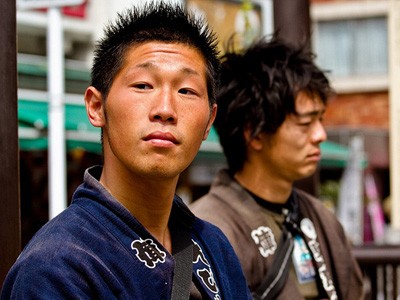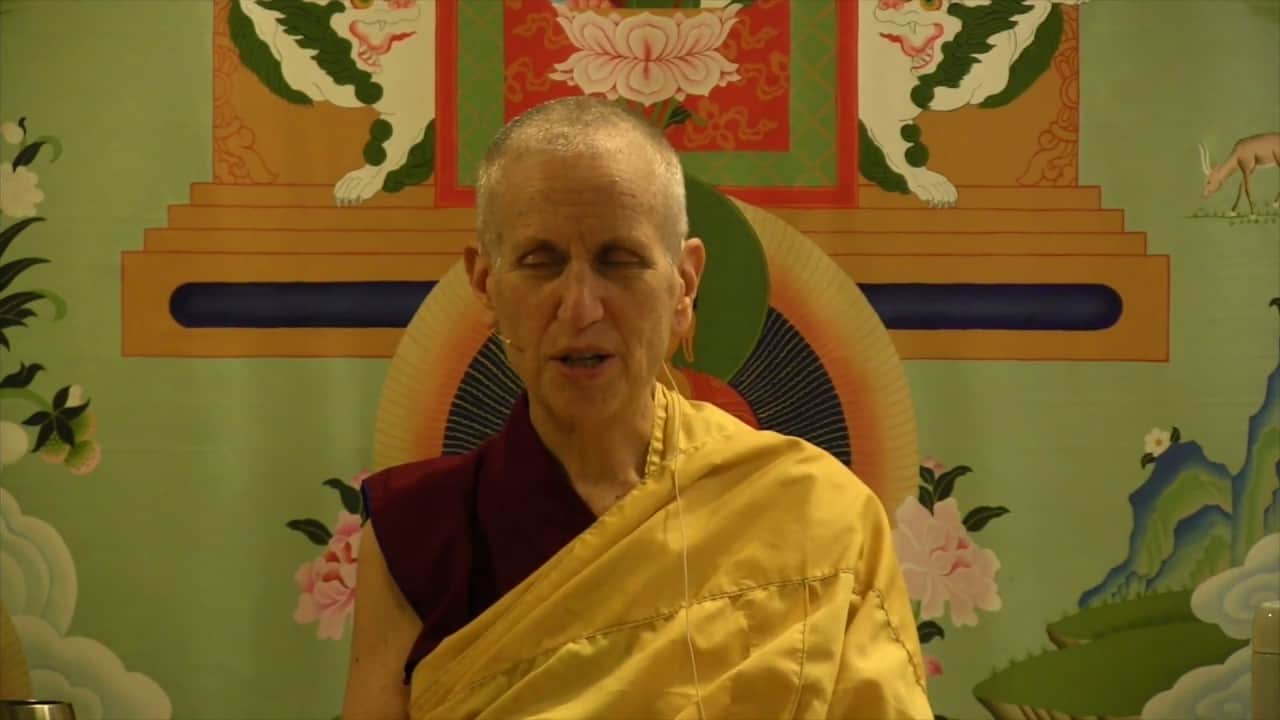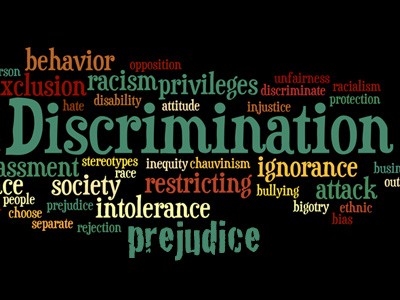The link between anger and arrogance
The link between anger and arrogance

Q: How are anger and arrogance related? Why is it said that humility allows us great fortitude and is the best antidote to arrogance? – B.P.
Venerable Thubten Chodron: First, let’s discuss the link between anger and arrogance. When we’re puffed up and arrogant, we expect people to treat us very well, exactly as we want to be treated. When they don’t, we get angry.
Insecurity feeds both anger and arrogance. When we lack self-confidence, we put on an arrogant show pretending to be so attractive, intelligent, rich, well-connected, talented, resourceful, and so on. We try to make a good impression on others even though we don’t believe in ourselves. There’s the subconscious thought, “If I can convince others how wonderful I am, maybe I’ll believe in myself.” Similarly anger can be based on feeling insecure. When we constantly compare ourselves to others and judge ourselves harshly, thinking we are incompetent, we easily get angry at others and put other people down in an effort to show them how powerful we are.
Another attribute that anger and arrogance share is that they both push people away. Others don’t like being around people who are pretentious and arrogant, nor do they feel comfortable around those that lose their temper and boss others around.
When unpleasant things that we do not like happen, we get angry, because we have underlying arrogance that such things shouldn’t happen to us because we are so special. Humility recognises that we are ordinary sentient beings who have created negative karma, so there’s no cause to be puffed up and think that bad things won’t happen to us.
Humility is the opposite of arrogance. When we have self-confidence, we can be humble. We are comfortable with who we are, accept our faults and weaknesses, and acknowledge our mistakes. We aren’t afraid to tell others when we don’t know something. When we believe in ourselves, we have no reason to be arrogant; we aren’t so attached to what other people think of us.
Arrogance and low self-esteem go together, and self-confidence and humility go together. Arrogance is an attempt to cover up our low self-esteem. But when we accept themselves, we don’t need to impress anyone. We don’t need to be the best or to receive the most praise. We’re fine being humble and we rejoice at others’ successes. We’re a lot happier than when we create a false image of ourselves and try to make others believe that’s who we are.
Self-acceptance is important for a happy life. We accept that at present we have certain faults. But we still use the Dharma to improve ourselves, to free us from destructive actions, and to create virtuous attitudes and actions. When people point out our faults, we admit them. That’s a lot easier that getting defensive, blaming someone else, or covering it up by lying. Then we do our best to remedy our mistake and try to improve in the future.
Personally speaking, I respect people who are transparent and admit their errors. I feel comfortable working with them. I find it very difficult to trust or to work with people who lie in order to hide what we all know they did.
Being honest with ourselves and others requires courage and fortitude. We have so much unnecessary fear, thinking, “Who will I be if I don’t defend myself? If I don’t put on a big show of how great I am to protect myself, other people will run all over me.” We need inner strength in order to dismantle that way of thinking and kickstart the process of cultivating, kindness, tolerance, forgiveness, and compassion for ourselves and others. To change and develop virtuous mental states is threatening to self-grasping ignorance and self-centeredness. So we go slowly, but surely, and like the turtle we’ll eventually get where we want to go. The Buddha did it: so can we!
Venerable Thubten Chodron
Venerable Chodron emphasizes the practical application of Buddha’s teachings in our daily lives and is especially skilled at explaining them in ways easily understood and practiced by Westerners. She is well known for her warm, humorous, and lucid teachings. She was ordained as a Buddhist nun in 1977 by Kyabje Ling Rinpoche in Dharamsala, India, and in 1986 she received bhikshuni (full) ordination in Taiwan. Read her full bio.


